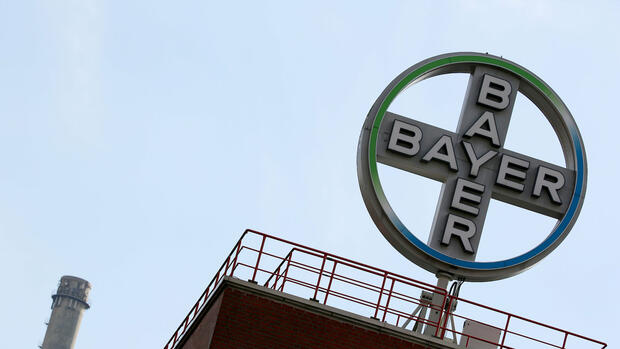Bayer wants to open up new sales potential in the billions with new gene and cell therapies.
(Photo: dpa)
Dusseldorf Bayer has taken a step forward in developing a therapy for Parkinson’s disease. The first study results of a drug developed by Bayer’s subsidiary Bluerock are promising. They show that cell transplantation is “feasible” and that the cells in the brain survive and grow over a 12-month period.
All patients tolerated the active ingredient “well for a year without major safety problems,” the chemical and pharmaceutical company reported on Wednesday. Based on the results, Bayer has now started to prepare the next phase II clinical study. In the first half of 2024, the group wants to start finding patients for the study.
For pharmaceutical companies, the market for Parkinson’s drugs is promising. Whoever develops a healing agent could secure sales in the billions. So far, only drugs that temporarily limit the symptoms are on the market. Bayer wants to be the first to market such a healing drug. Despite positive initial study results, it could still be years before a possible approval.
The results that are now available and which Bayer intends to present in detail at the end of August at the International Congress on Parkinson’s and Movement Disorders in Copenhagen are from clinical phase I. Bayer has tested the drug on twelve patients. Phase II and phase III studies will follow before approval is possible.
Motor skills gradually decrease
In Parkinson’s patients, the brain no longer produces enough of the neurotransmitter dopamine. There are 400,000 Parkinson’s patients in Germany and a good ten million worldwide. The disease gradually reduces their motor skills, muscles stiffen, and movements become slow and uncontrolled.
With cell therapy, Bayer wants to stop Parkinson’s – and maybe even reverse it. To do this, new cells are implanted in the brain with a fine needle, which are intended to ensure that dopamine is produced again. This is intended to restore the functions of the brain that were lost due to the disease.
The drug candidate, called Bemdaneprocel, was developed by Bayer’s independently operated subsidiary Bluerock. In 2016, the company was co-founded as a joint venture by Bayer’s venture capital arm Leap. In 2019, Bayer completely took over Bluerock for $600 million.
>> Read also: Biotech company Morphosys is finally hoping for a breakthrough with a new cancer drug
Bluerock is one of Bayer’s biggest hopes in the pharmaceutical business. With its therapies, the company also wants to help blind patients or regenerate scarred heart muscle tissue.
Bayer’s risky billion-dollar bet on gene and cell therapy
Christian Rommel, who heads pharmaceutical research at Bayer, considers the positive result of the first cell therapy study for Parkinson’s to be promising. “Not only for the Bemdaneprocel development program, but also for our entire pluripotent stem cell platform.” Bluerock-Therapeutics’ director of development, Ahmed Enayeallah, calls the results a “milestone in the development of a potential new therapy for patients with this disease”.
>> Read also: The new Bayer boss wants to shake up the company
Bayer wants to open up new sales potential in the billions with new gene and cell therapies. So far, however, this area has been a risky bet worth billions for the company: up to 90 percent of the therapies that pharmaceutical companies test on people fail. The new drugs in gene and cell therapy could be on the market at the end of the decade at the earliest. Until then, they mainly cause costs.
Meanwhile, Bayer is still suffering from the Monsanto takeover. The company now wants to transform itself into an integrated life science group, with sales in the pharmaceuticals division expected to grow by 50 percent by 2030. The success of new medicines is decisive for this: In a few years, the patent protection for Bayer’s most profitable medicines, the anticoagulant Xarelto for stroke patients and the eye medicine Eylea, will expire.
Then Bayer will have to come up with new drugs – such as the Parkinson’s drug or other drugs in the pipeline that are already further in development, such as the stroke drug Asundexian, which is being traded as a potential successor to Xarelto.
More: Diet pills are said to be a billion-dollar business
